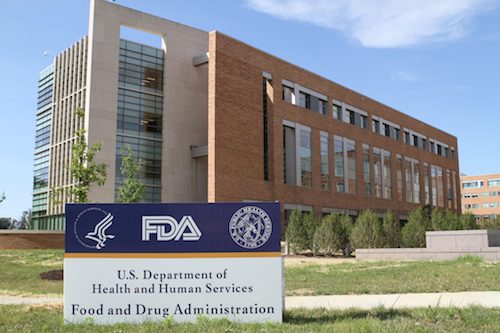
Sanofi and Regeneron’s PD-1 inhibitor Libtayo has received US Food and Drug Administration (FDA) approval in first-line, advanced non-small cell lung cancer (NSCLC).
Specifically, Libtayo (cemiplimab-rwlc) has been cleared for use in newly-diagnosed, locally-advanced or metastatic NSCLC patients who have high PD-L1 tumour expression and are not candidates for surgery or definitive chemoradiation.
This is the second approval for Libtayo this month, with the immunotherapy previously winning an authorisation in previously-treated advanced basal cell carcinoma.
The NSCLC approval is based on an analysis of data from a phase 3 trial involving 710 patients who were randomised to receive treatment.
In advanced NSCLC patients with ‘proven’ high expression of PD-L1, Libtayo reduced the risk of death by 43% compared to placebo. In all patients who expressed PD-L1, the risk reduction of death was reported as 32%.
As a latecomer to the immunotherapy class, Libtayo first entered the market in 2018 with an approval in advanced cutaneous squamous cell carcinoma, a form of skin cancer.
Since then, Sanofi and Regeneron have been conducting a broad research programme for Libtayo, across a range of settings, as a monotherapy and in combination with chemotherapy and other novel agents.
“Libtayo is being investigated in a variety of settings, and we hope to share updates later this year on our pivotal trials in cervical cancer and in combination with chemotherapy in advanced non-small cell lung cancer,” said Israel Lowy, senior vice president, translational and clinical sciences, oncology at Regeneron.
In its new NSCLC setting, Libtayo will take on Merck & Co/MSD’s blockbuster checkpoint inhibitor Keytruda (pembrolizumab).
Keytruda has become the new standard-of-care treatment for newly-diagnosed advanced NSCLC, after first winning approval in October 2015.
In 2019, FDA approved an expanded label for Keytruda as a monotherapy treatment in the first-line setting for advanced PD-L1-positive NSCLC patients, widening its scope and reinforcing its dominance in this cancer type.
In recently published long-term data from the phase 3 KEYNOTE-024 trial, Keytruda reduced the risk of death by 38% versus chemotherapy at the five-year time point among NSCLC patients with a PD-L1 proportion score of 50% or greater.
In addition, another advanced, PD-1-positive NSCLC monotherapy study of Keytruda – KEYNOTE-042 – demonstrated a three-year overall survival rate of 31.3% in the treatment group compared to 18.4% in the chemotherapy group




